End of the Innocence
Wrongful Conviction Day 2025
Caution: This post contains facts related to criminal cases involving rape and murder. Please take care in reading. Many years ago, I had a boss who liked to brainstorm ways of getting employees dismissed from jury duty. After receiving a summons, I mentioned it in a staff meeting.
‘Just tell them that you work in mental health,’ he said, ‘the prosecution hates us.’
Everyone laughed and started throwing optional excuses into the center of the table— as if I had initiated a card game. I was stunned to find all of my well-educated and socially-conscious colleagues (who never missed an opportunity to talk of injustice) giddy to dodge a tangible chance to defend civil liberties.
My summons actually turned out to be for a big, bad murder trial. I was in the last group brought in for voir dire, but got dismissed when the retired man in front of me was selected as the alternate. I don't think I'll ever forget the face of that fidgety man in the defendant’s seat. I later learned from the news that he was sentenced to a life behind bars— the same bars my son is now living behind.
The idea of having a selected group of peers hear both sides of a legal dispute or alleged social misdeed seems uniquely American, but it is actually rooted in English Common Law— traced all the way back to Roman times. As early as the 11th century, Brits (or more precisely, the Normans) knew they needed to protect themselves from the unchecked power of a distant, accusatory Crown. They initiated a system which would allow the little guy a chance to fight false accusation and defenseless conviction through a panel of assembled community members.
When America was coming through the birth canal, our ancestors were often denied the right to be heard in colonial courts. In fact, one of the written complaints in our Declaration of Independence (found smack in the middle of the grievance section) is the fact that we wanted King George III to stop— and I quote, ‘depriving us in many cases, of the benefits of Trial by Jury.’
As the family member of someone in prison, I am painfully aware of the process that leads to conviction in our country. Over 90% of defendants in the U.S. will take a plea bargain, as did my son. This is not necessarily because they are guilty as charged, but often because the threat of mandatory minimums and prosecutorial advantage outweighs the potentiality that a fair trial awaits them. Contrary to what we have been taught, innocent until proven guilty is not our default.
This plea deal statistic also means that prosecutors are already avoiding 90% of the trials that could play out in front of a jury. When you get that piece of paper asking you to commute to your local courthouse to give up your time, sit amongst strangers, and awkwardly answer questions— you have been promoted to one of the most important roles you'll ever play. There is perhaps no greater position of influence you'll hold in someone’s life, save parenting, and let me be frank— complaining that this is a waste of time or finding ways to ‘get out of it’ is a damn shame. God forbid it is you or your child one day begging a jury for your life and you find only a gathering of unemployed people and bored retirees showing up to hear anything about it.
In 1984, a nine-year-old girl named Dawn Hamilton was abducted, raped, murdered, and her tiny body was discarded in a rural Maryland woodland. The crime gripped the small community, for obvious reasons, and a high-pressure investigation ensued. Police inquiry brought forth five individuals who claimed to have seen a 21-year-old neighbor named Kirk Bloodsworth ‘near the area’ before the little girl went missing.
Aside from his unfortunate last name, Mr. Bloodsworth was identified as an outsider who had a brief and unremarkable background in petty, non-violent crime. He was a quiet loner and an ex-Marine who was drifting from a failed marriage when Dawn was killed. Neighbors quickly attached his likeness to the composite police sketch on the news, and he was arrested.
With only circumstantial ‘eyewitness’ testimony and no forensic evidence linking him to the crime— Kirk Bloodsworth was convicted in a 12–0 jury vote and sent to Maryland’s death row in 1985. He only ever proclaimed his innocence and fought a lengthy, uphill post-conviction battle from his isolation cell. It wasn’t until 1993 that he was given a full pardon after DNA evidence proved another man had committed the crime (and that man confessed).
Kirk Bloodsworth became the first U.S. exoneree from death row as a result of DNA testing.
Okay, you say, so rare legal mistakes happen. Surely this is the exception.
Not at all.
Since 1989, over 3,731 people have been exonerated in the United States after serving prison time for something they didn't do. In the past five decades, 193 people have been released from death row as a result of wrongful conviction. Collectively, these men and women spent over 34,632 years in prison for crimes they did NOT commit— and many of them were freed by DNA evidence like Kirk Bloodsworth. If you are following along, that means that We, The People would have paid tax dollars to murder nearly 200 innocent people had it not been stopped by attorneys and (often mocked) advocates.
It is more depressing to realize that these numbers only include the ones who have made it through decades of post-conviction legal mazes from within the doldrums of purgatory. Many poor and uneducated prisoners are never heard from again and thousands of people have died in prison before their cases were re-considered. Once you're trapped in a deep, dark cell away from society, the system is not designed to let you out— even when your prosecutor is fighting for you to be freed.
Consider the horrifying case of Richard Glossip.
For 27 years, there has been a man on death row in Oklahoma who was convicted of ‘hiring’ a man to murder his boss (the actual murderer got life in prison). Mr. Glossip has been given nine different execution dates and served a final meal on three occasions. Since 1997, the State of Oklahoma has been trying to kill him but the State’s Attorney General finally came forward last year to say that Glossip was railroaded and witnesses lied on the stand.
These facts went all the way to the Supreme Court of the United States and they (a conservative majority court) ruled in February 2025 that Glossip never received a fair trial.1 Almost 30 years of an annual $100,000+ taxpayer bill to keep this man housed on death row— and they are just now trying to remedy it. Richard Glossip still awaits a new trial at the time of my writing. It could very well be a jury trial— so, fair warning, if you live in Oklahoma County you might want to start thinking about time off of work.2
We could also consider the cases of Temujin Kensu in Michigan or Toforest Johnson in Louisiana or Leo Scofield in Florida or Robert Pape and Cristin Smith in California or Robert Roberson, now only a month away from execution in Texas.3 Dear God, do not let them kill him like they did Todd Willingham and Marcellus Williams.
Look up the stories of Ronald Cotton, Anthony Porter, Henry and Leon McCollum, Curtis Flowers, Jeffrey Deskovic, Marty Tankliff, Crosley Green, Sandy Melgar, JJ Velazquez, Melissa Lucio, Lee Clark and Joshua Cain Story and on and on and on. You can even look them up by location— The West Memphis Three and The Norfolk Four and The Central Park Five. All factually innocent, all convicted in jury trials, all sentenced to prison or death for crimes they did not commit.
Okay, but they’re all ‘innocent’ in prison, right?
No, most are not (nor do they claim to be) but if even the most conservative estimates are correct and 1% of our incarcerated population is doing time for a crime they did not commit— we are talking about 22,000 people behind bars right now that do not belong there. At your expense. Aside from this being extremely wasteful spending of our money, it is incredibly dangerous. For every one of those innocent people in lock-up, 22,000 real perps are still on the streets in our communities.
Your informed and purposeful presence on a jury keeps our children safe. So, let's test our jurist awareness level.
True or False:
Police can legally lie to individuals during questioning.
Witnesses can be compensated and/or rewarded for their testimony.
Jailhouse snitches get reduced sentences in exchange for their statements in court.
Eyewitness accounts are less accurate when identifying individuals of a race different from their own.
Shaken baby syndrome is not a proven medical diagnosis.
If a suspect passes a polygraph, police can claim they failed.
Bite marks cannot be accurately analyzed by dental experts.
Attorneys do not have to meet with a defendant in advance of hearings.
If you have answered False to any of the above, you would be incorrect. Each of these statements is True. If you knew them all, congrats— and I hope you are called for jury selection soon in my area.
This coming Thursday, October 2nd marks the 12th annual Wrongful Conviction Day. In lieu of a Misfit Book Club selection this month, I have chosen to compile a list of resources for Black Sheep Mom readers concerning these matters. If you are a true crime podcast junkie like me, you are in luck. If you are an avid documentary movie buff, may you find one here that you haven’t seen yet. If you are a reader or attend a book club, this book list is essential— Check out the resources below!
Please keep this conversation going! Have you served on a jury? Have you dodged jury duty— if so, why? Do you know someone who has been wrongfully accused or convicted? Do you have recommendations to add to the lists below? I’d love to hear from you in the comments.
Justice-Related Podcasts (with links to Spotify)
Wrongful Conviction with Jason Flom
One Minute Remaining with Jack Lawrence
Bone Valley with Gilbert King
Earwitness with Beth Shelburne
Murder in the Orange Grove with Erin Moriarty
Truth and Justice with Bob Ruff
In The Dark (Season 2) from APM Reports
Hands Tied with Maggie Katz
Proof: A True Crime Podcast with Susan Simpson & Jacinda Davis
Murder in Oregon and Murder in Illinois with Lauren Bright Pacheco
For the Innocent with Michael Semanchik
What If They’re Wrong (formerly The Accused) with Amber Hunt
Wrongful Conviction Documentaries (links in pictures)
Non-Fiction Innocence Books (Great for Book Clubs)
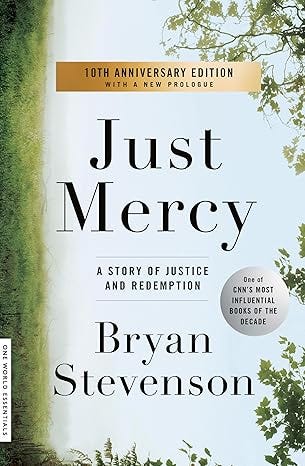
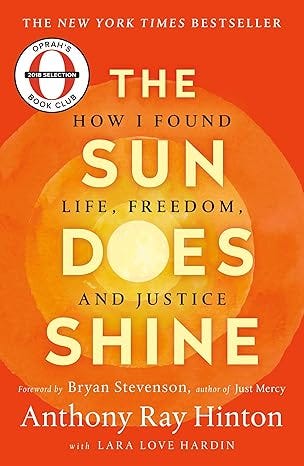
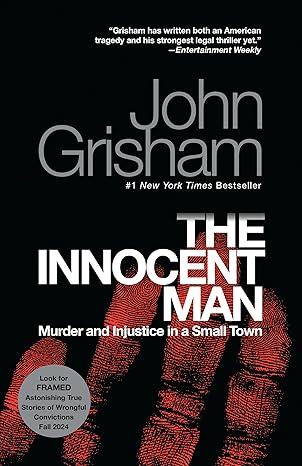
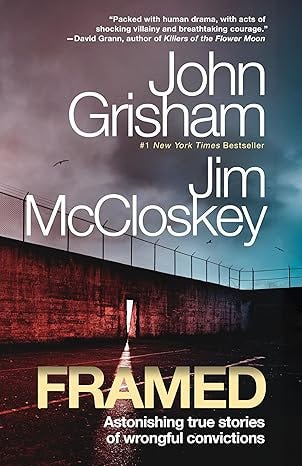
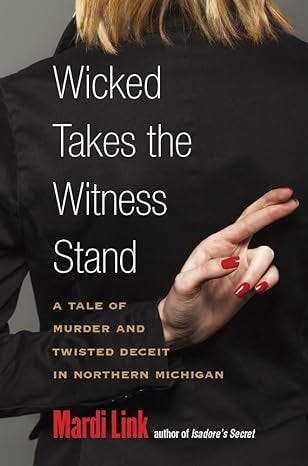
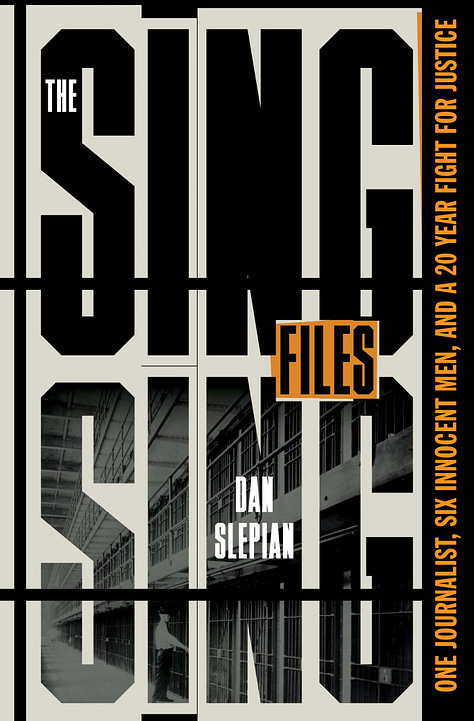
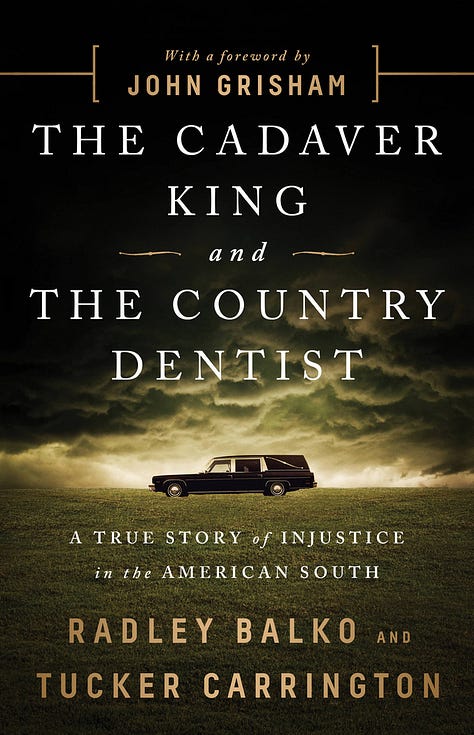
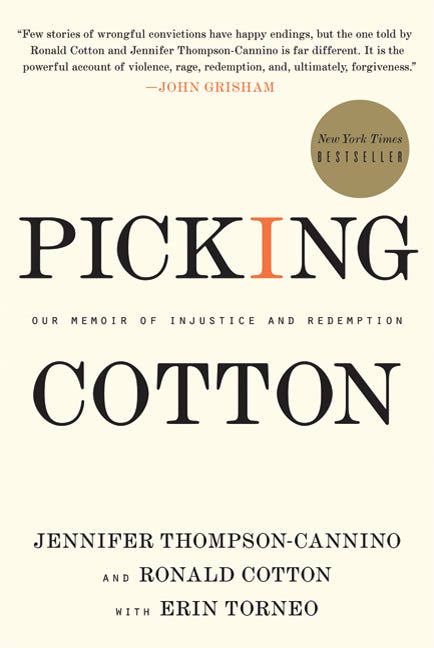
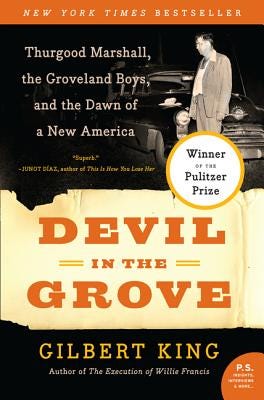
Just Mercy by Bryan Stevenson
Sun Does Shine: How I Found Life and Freedom on Death Row by Anthony Ray Hinton
The Innocent Man: Murder and Injustice in a Small Town by John Grisham
Framed: Astonishing True Stories of Wrongful Convictions by John Grisham and Jim McCloskey
Wicked Takes the Witness Stand: A Tale of Murder and Twisted Deceit in Northern Michigan by Mardi Jo Link
The Sing Sing Files: One Journalist, Six Innocent Men, and a 20-Year Fight for Justice by Dan Slepian
The Cadaver King and the Country Dentist: A True Story of Injustice in the American South by Radley Balko and Tucker Carrington
Picking Cotton: Our Memoir of Injustice and Redemption by Jennifer Thompson-Cannino and Ronald Cotton
Devil in the Grove: Thurgood Marshall, the Groveland Boys, and the Dawn of a New America by Gilbert King



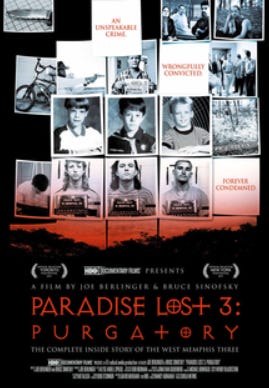
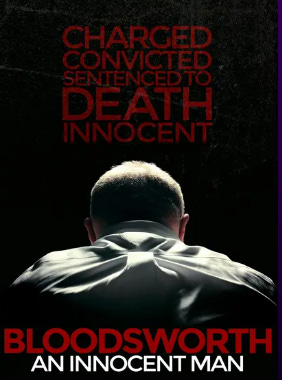
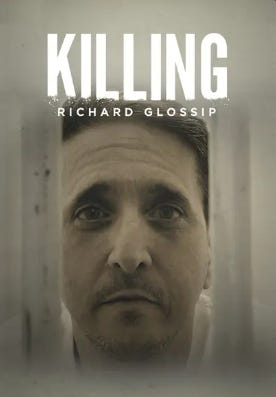

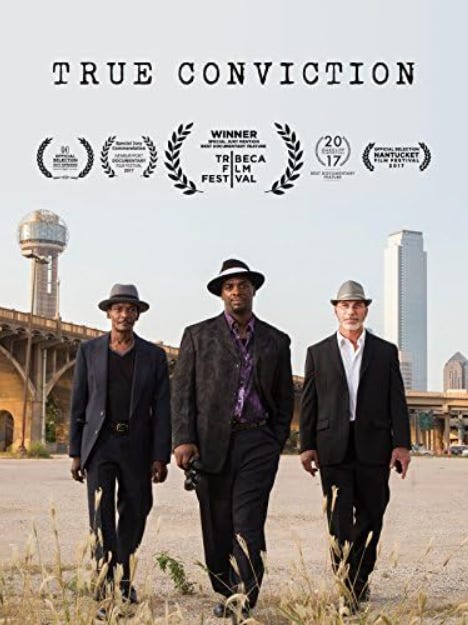
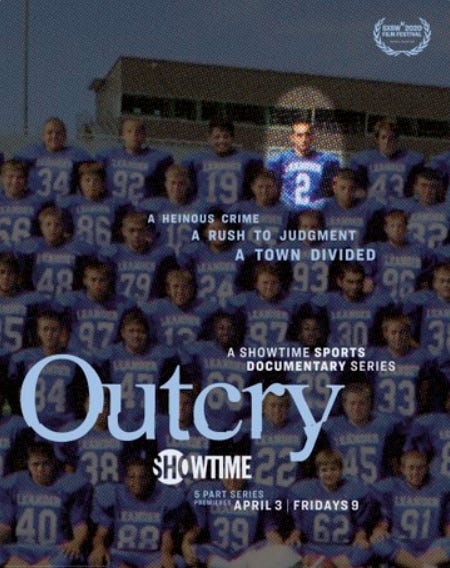
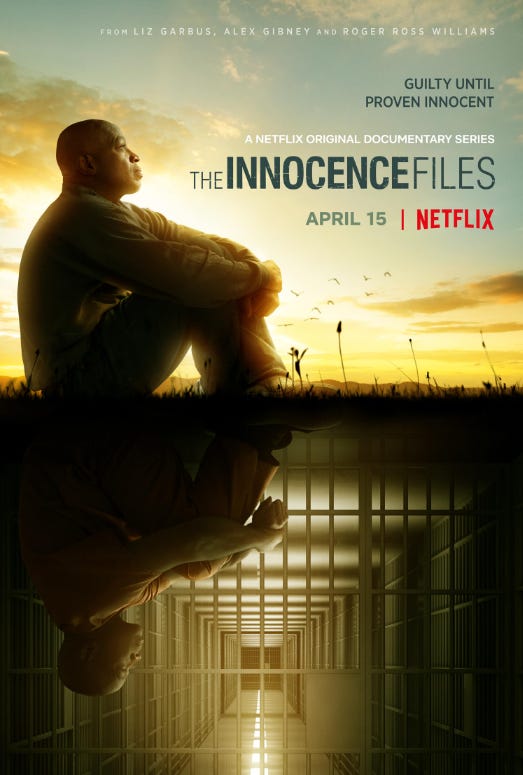
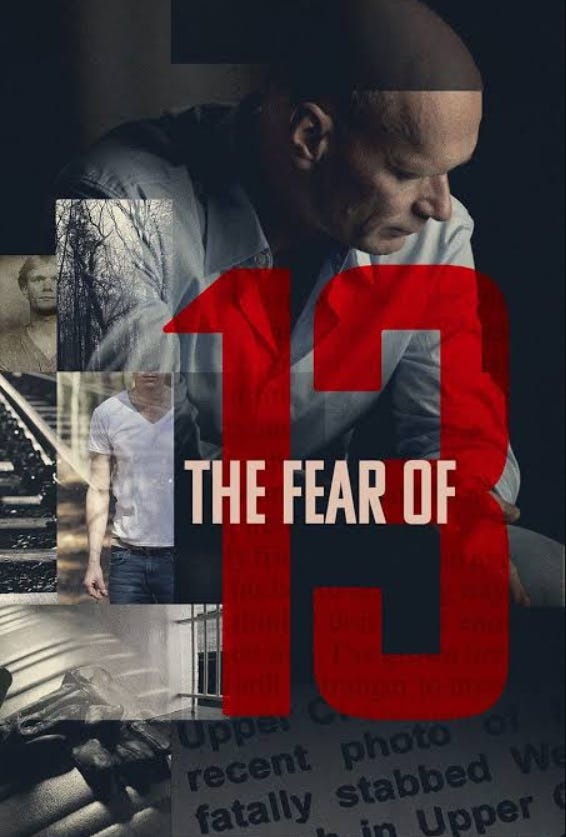
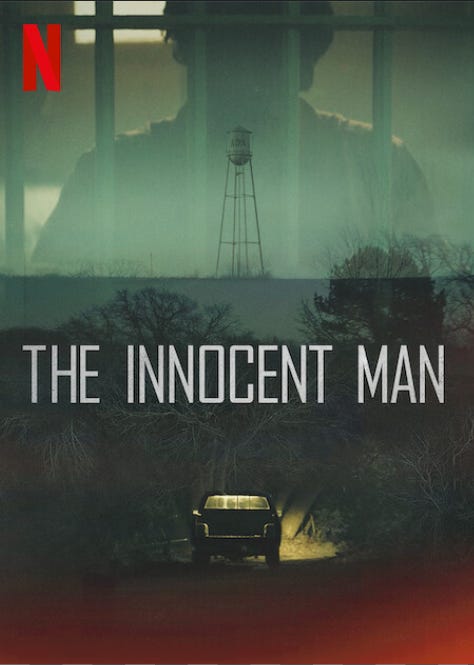
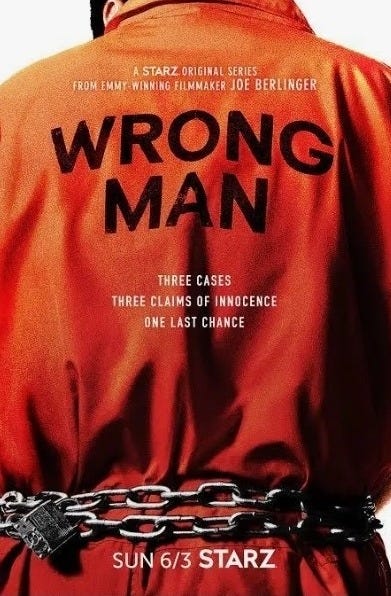
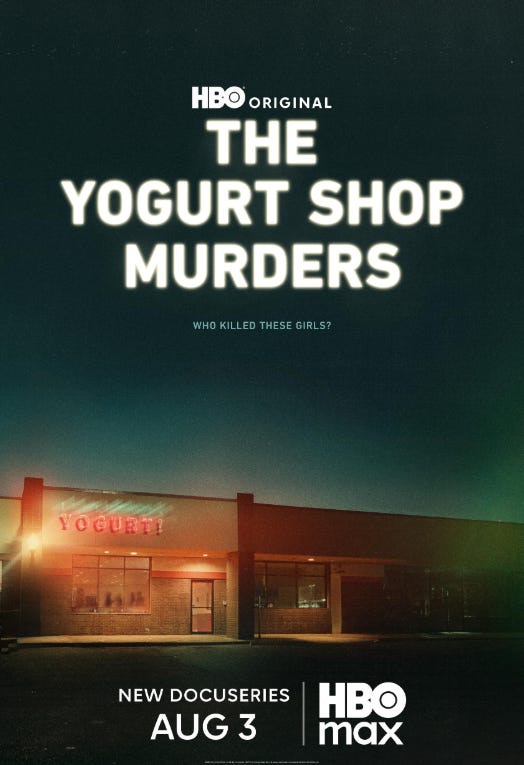
Thank you for providing all these resources! I appreciate your blog and all you share within! ❤️🌻
I must admit that I have been guilty of doing my best to get out of jury duty. But you have made me think about it differently. Great article. And I'm sure you've heard it from him, but your son must be so proud of you.